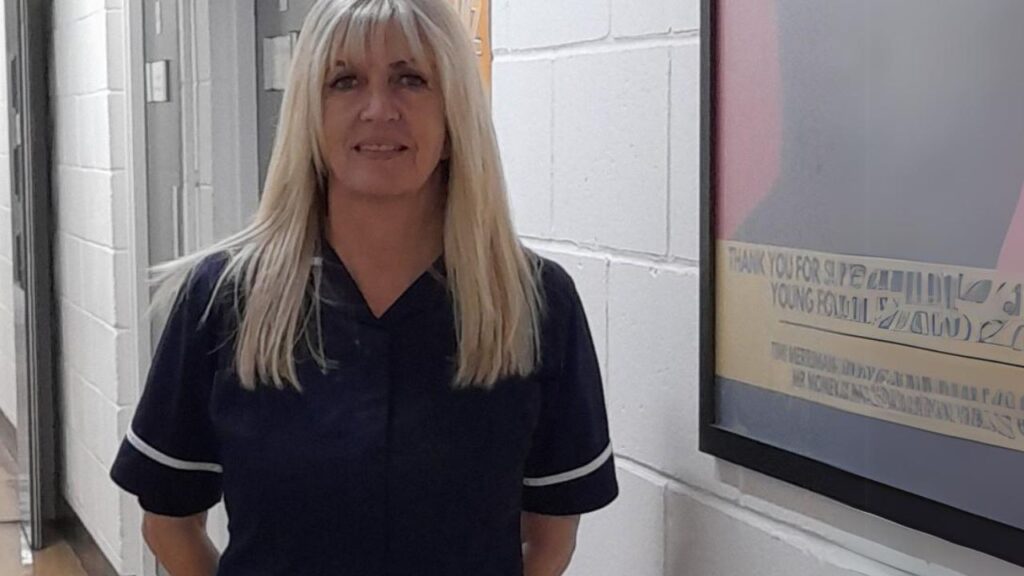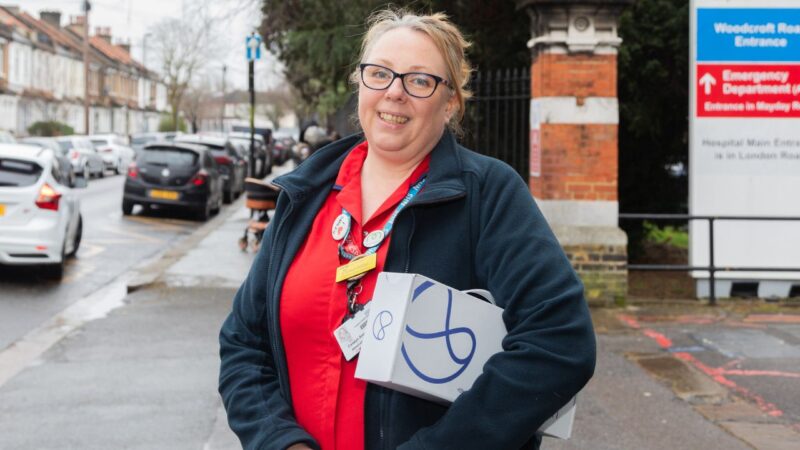In the past year, more than 25,000 people across south west London have benefited from the two-hour urgent community response service that brings health and care professionals to their door within two hours of a call, avoiding trips to emergency departments and keeping people safe and well at home. The service is particularly valuable during the busy winter months, as high demand means increasing pressure on hospitals.
The national initiative launched in south west London in April 2022. Among those to benefit was 92-year-old Olive*, whose daughter contacted the service because her mum seemed confused, unsteady on her feet and was suffering with urinary incontinence for the first time. Normally quite mobile, Olive had struggled to get out of bed resulting in a fall.
The urgent community response team arrived at Olive’s home. After checking she was not injured from the fall, they diagnosed a urinary tract infection and prescribed antibiotics. As the infection had left her unstable when walking, the team’s occupational therapist organised a three-day care package with equipment (commode, bed lever and perching stool) to keep Olive safe and comfortable at home. They also connected her with the falls-prevention team and Age UK for social support.
The two-hour urgent community response service operates seven-days-a-week across all south west London boroughs. Anyone aged 18+ can use the service, but it is particularly valuable for older and vulnerable people. Referrals come via care homes, NHS 111, GPs, family members and patients themselves.
I know people really value being seen quickly, and in an environment where everything is comfortable and familiar.”
It is suitable for many conditions, which are urgent but not life-threatening and can be managed at home. Examples include confusion and issues associated with dementia and falls – where there is no serious injury. The teams are also called out to help with pain relief needs at the end of someone’s life, urgent support for those with diabetes and problems with catheters.
During visits, the community responders can help with a range of people’s needs, such as ordering equipment to prevent falls and referring them for support from other community services, their GP, voluntary organisations or social care. The aim is to make sure more people in crisis get speedy support, avoiding unnecessary hospital admission or trips to emergency departments.

Nurse Fiona Glenister (pictured above), who works Central London Community Healthcare NHS Trust, is a community responder in Wandsworth. She is also a nurse with the virtual ward service. With a background in palliative care, Fiona is able to help manage symptoms for end of life care patients. She said: “From my visits I know people really value being seen quickly, and in an environment where everything is comfortable and familiar. The majority of people we visit can be treated at home without needing to go to the emergency department, which is better for them and for services under pressure.”
I know people really value being seen quickly, and in an environment where everything is comfortable and familiar.”
Margaret Green, who is 82 and lives in Sutton and was seen by the service recently while in a lot of pain from a trapped nerve in my back. She said: “It took 15 minutes for the paramedic and nurse to arrive. They came and examined me and did some tests. They got me some medicine for my pain and contacted the hospital about my MRI scan results and future appointments. They were really brilliant, lovely people and such a big help to me. They really put me at ease.”
*Not her real name
